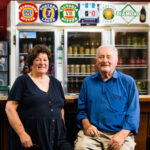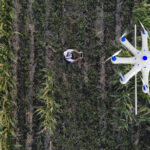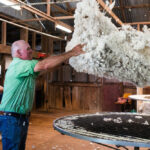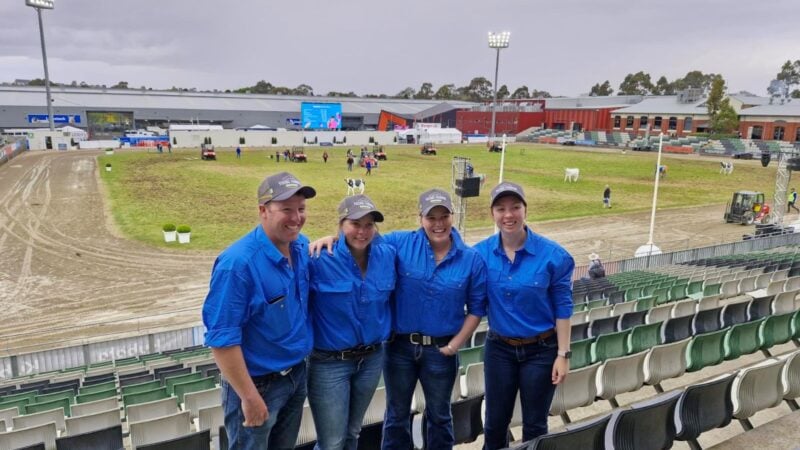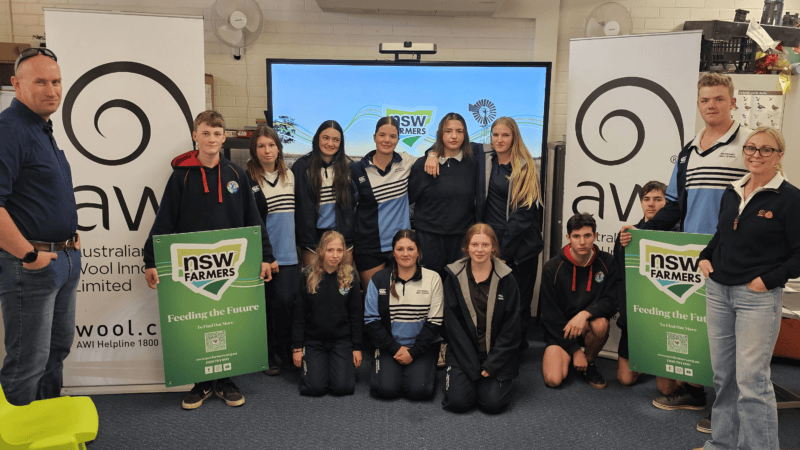The pastoral town of Ivanhoe was headed for a deep slumber in 2020 after a…
Spotlight on the town of Dorrigo
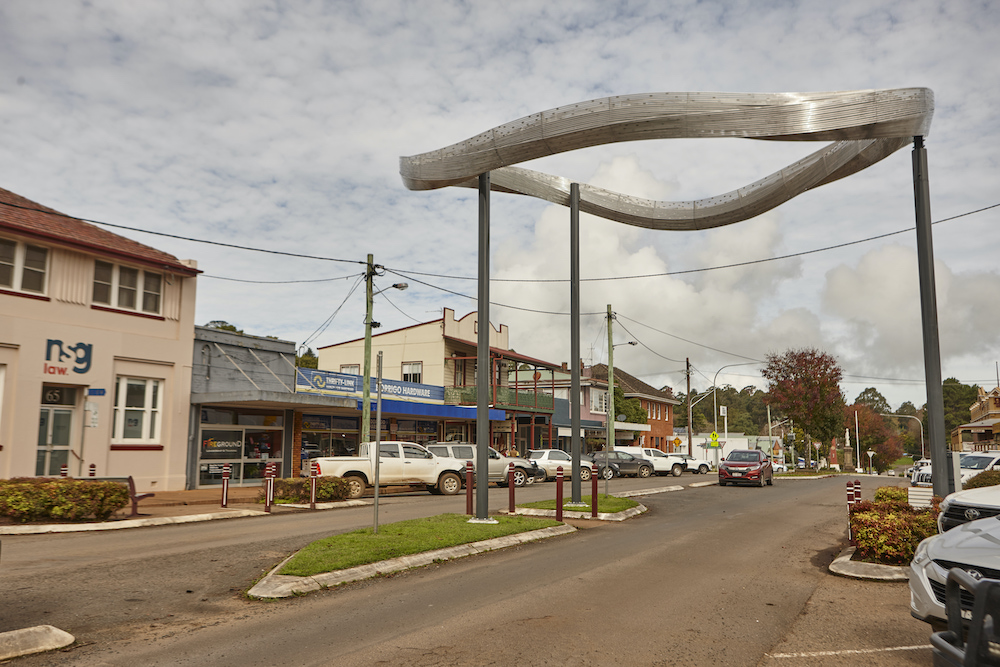
The 1917 Guide to the Dorrigo Shire extolled the plateau as �an enormous area of splendid, delightfully, watered agricultural and dairying lands, upon which are many smiling homesteads and herds of well-bred cattle�.
The reputation of the Dorrigo Plateau as a place of great richness and fertility spread quickly in the early part of the 20th Century, with hundreds of people moving to the district to take up dairy farming.
By 1906 the town of Dorrigo had its own butter factory, by 1922 it had a bacon factory, and by the 1930s the rich local soils produced bountiful yields of the famous Dorrigo spud.
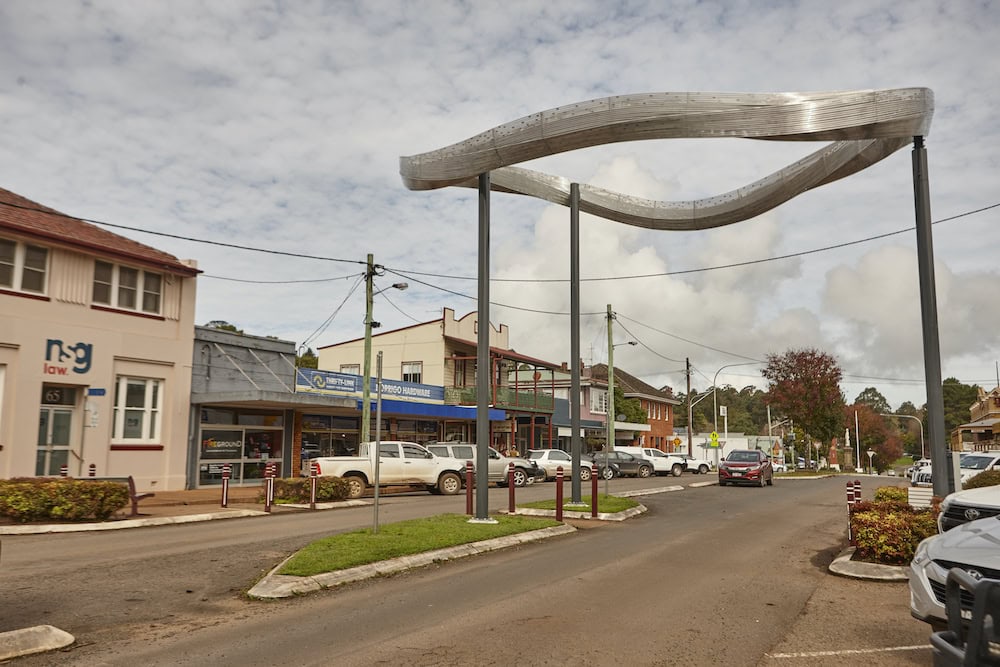
Like many north coast towns, Dorrigo�s agricultural boom was preceded by timber cutters establishing a settlement as part of a rush for valuable native red cedar known at the time as �red gold�.
Third generation Dorrigo dairy farmer Wayne Burley said agriculture remains vital to the town�s economy and social fabric despite a significant fall in the dairy farmer population.
�At our peak we had almost 500 dairy farms on the plateau, and now there�s less than 20,� Wayne says. �However we are producing the same amount of milk now as we did back in the 1930s and 1940s. Back then, the trend was to milk around 30 cows to supply cream, grow some potatoes and have some pigs.
�Farmers would make a bit of money out of potatoes, a bit of money out of pigs and a little bit more from dairying.�
Wayne�s grandfather Gus was one of those farmers. He established the family dairy farm and the Moonpah Jersey Stud in 1945.
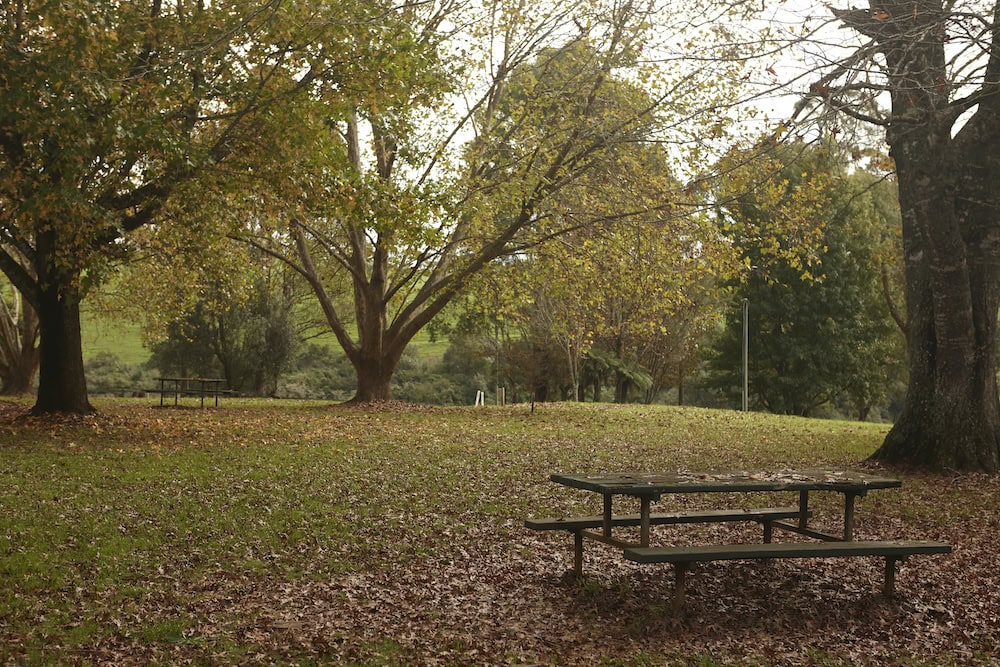
�We�ve been showing our Jerseys at the Dorrigo Show since 1946 and we�ve never missed a show,� Wayne proudly says.
Wayne is retiring from dairy farming later this year but will still �play around� with some Speckled Park cattle on a smaller farm and continue to dedicate time to community groups like the Dorrigo Show Society.
�I love everything about Dorrigo and our community. The area is entrenched in me and I will never leave, although we might do some travelling this year,�
Dorrigo farmer Wayne Burley
�I love the land around here � it�s beautiful country with plenty of amazing views, which has helped develop a growing tourism market.�
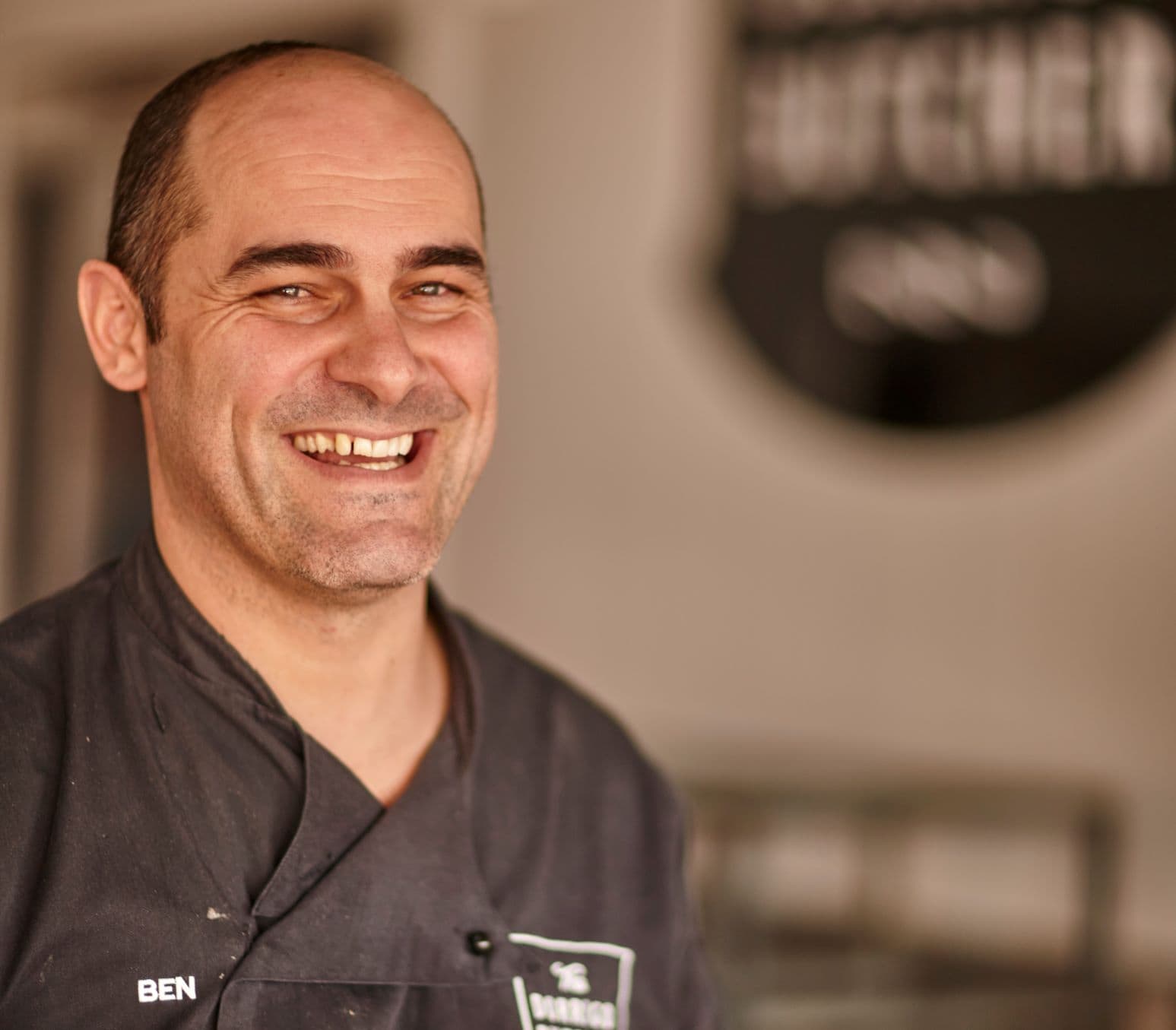
Ben the new butcher in Dorrigo
Former civil engineer Ben Garnock is enjoying a local food journey as a newly trained butcher and supplier of produce grown on the Dorrigo Plateau.
Ben and wife Meghan purchased The Dorrigo Butcher in 2019 after fulfilling a goal to move to a regional town for a better family lifestyle.
Dorrigo was top of the list with Megan�s parents, Michael and Cynthia, running a Dorrigo Plateau farm called Demlane Farm that produces prime lamb, citrus and asparagus.
�I have always wanted to do something with food,� Ben says. �Initially I worked on the farm and helped with marketing the lamb. The butcher shop came up for sale and it was too good of an opportunity to miss. We can market our produce directly to locals and tourists.�
Ben kept a butcher employed while he trained, and he became a qualified butcher in 2021.
�I am very proud to say we recently won first place in our region�s AMIC Sausage & Smallgoods Competition for our Ham on the Bone and our Steak and Guinness Sausages,� he says.
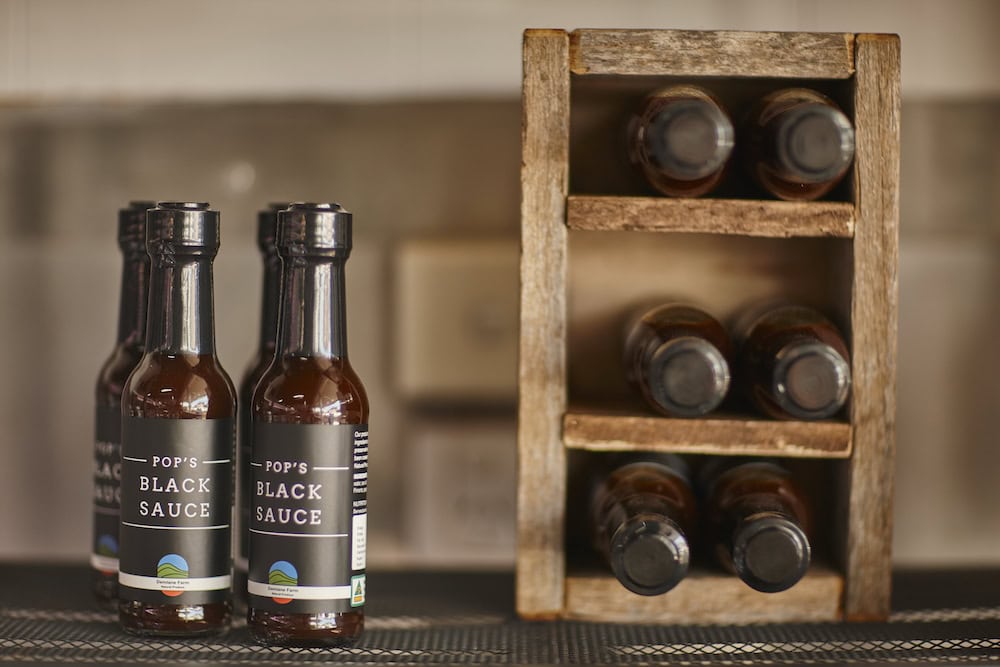
Ben said the shop�s beef and pork is also sourced locally from the Plateau and north coast region, including beef from Marengo Pastoral Co and free-range pork from Mirrabrook Pork at Lawrence.
The Dorrigo Butcher now also includes a delicatessen showcasing a range of valued added artisan products. �Demlane Farm also do a range of value-added citrus products that we sell. The Rangpur Lime marmalade recently won a Reserve Champion Award at the recent Tasmanian Fine Food Wines. And we�ve just a released a Waterfall Soda lemon squash soft drink using lemons grown on the farm.�
A boost for ecotourism
Dorrigo is set to rival the Daintree as an ecotourism capital, with a $56 million investment in Dorrigo National Park from the State Government.
The Dorrigo Rainforest Centre is already a popular stop on the Waterfall Way for tourists, and it will soon be enhanced with a 46-kilometre walking track, new camping areas, three suspension bridges and a new Arc Rainforest Centre.
The walk and new rainforest centre will also incorporate connection and education about the culture of the traditional custodians of the rainforests, the Gumbaynggirr people.
The state government hopes the project will attract an extra 200,000 domestic and international visitors to the region.
NSW Environment Minister James Griffin said the project was part of the largest ever capital investment program in the state�s national parks.
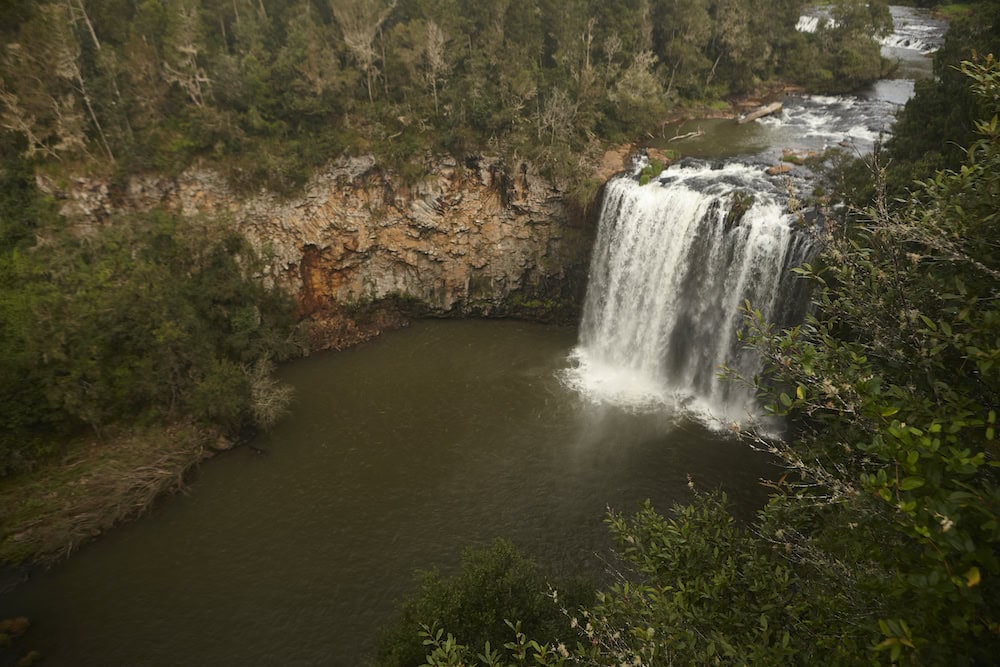
�The rainforest at Dorrigo National Park is even more spectacular than the Daintree,� he says. �I�m proud to say that with this magnificent new 46-kilometre walk, we�ll be happily tempting domestic and international tourists away from Queensland.�
The town of Dorrigo: what’s in a name?
The naming of Dorrigo is marred with some controversy. For decades the official origin was said to have come from Major Edward Parke, who explored the area in the mid-1800s with plans to settle there.
Major Parke had fought in the Peninsula Wars under a Spanish General named Don Dorrigo. It is said he decided to honour this Spanish General by naming the eastern section of the plateau Dorrigo.
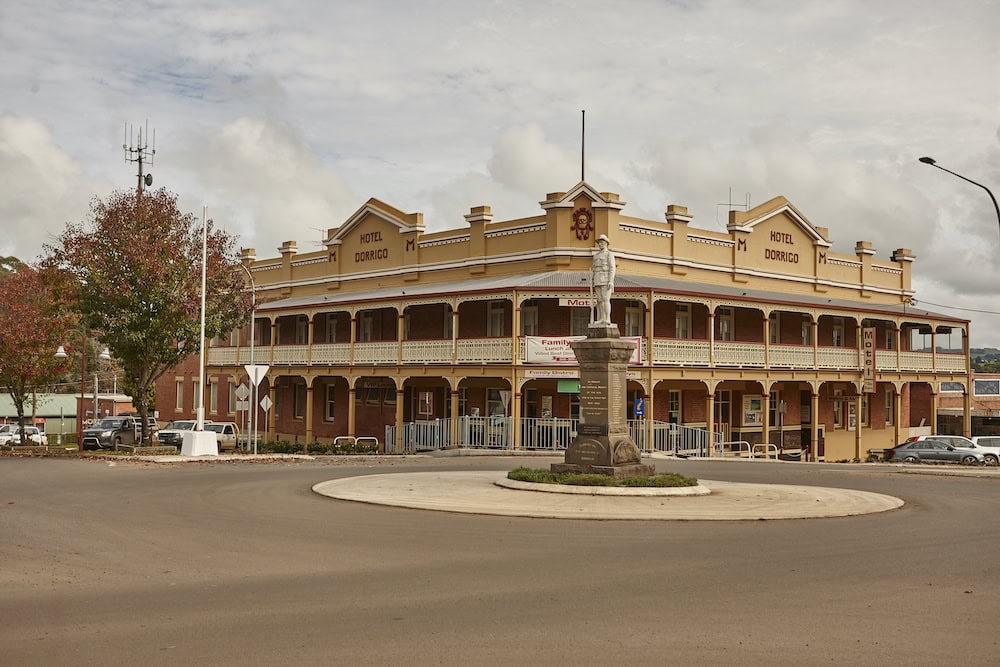
Some locals disagree with this explanation, suggesting Dorrigo is an abbreviation of �Dondorrigo� � a local Aboriginal word for the stringy bark gum tree.
A group known as the Dorrigo Plateau Walking Together Group did some research and found the NSW Geographical Names Register records that the name�s origin is from the Gumbaingiir language and it means �Stringy Bark�.
Dorrigo�s own fertiliser brew
Mother and son team Sonja Kallio and Jake Britten have brewed up a Dorrigo-based biological fertiliser company with a difference.
Sonic Natural Farming produce bulk bio-fertilisers using beneficial microbes and all natural ingredients, but its main focus is on enabling Australian farmers to access locally produced supplies or to have their own fully managed production system on-farm.
�Biological fertilisers are a living product, so local production allows farmers adopting regenerative agriculture to have the freshest biological soil care solution. It also reduces product transportation costs and the use and costs of plastic containers,� Sonja says.
Sonja and Jake developed the fertiliser to assist with their own farming requirements.
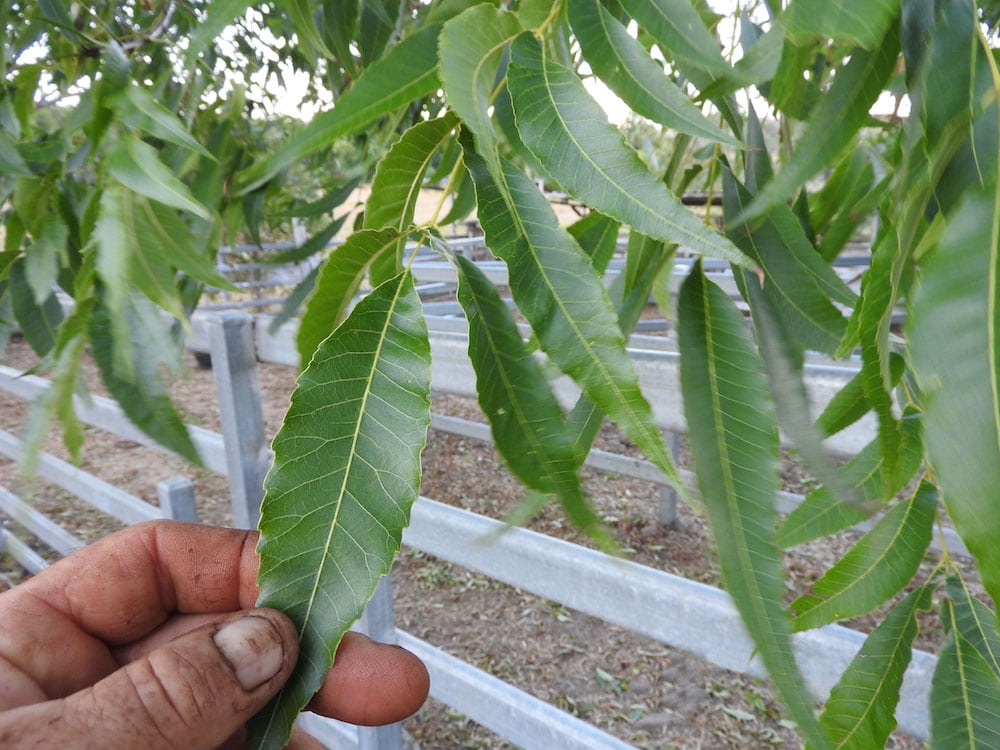
�As farmers, we realised some time ago that we needed to focus on improving the biology in our soil in order to produce nutrient dense food.�
They initially made and used the fertiliser on their newly planted avocado orchard and found that over five years the trees had no disease and continued to produce outstanding fruit from as early as their second growing season.
The fertiliser was then used on a pecan farm with similar results (see photo here of a pecan leaf), and on growing nutrient dense pastures for sheep and cattle.
�With regional production and supply made available, everyone saves, and the environment is less impacted as a result,� Sonja says.
Sonic Natural Farming is really kicking some goals taking their biological fertiliser production systems nationwide. If you have any enquiries, Sonja can be contacted on 0423 139 578.
If you enjoyed this feature, you might like our story on the town of Hay.


